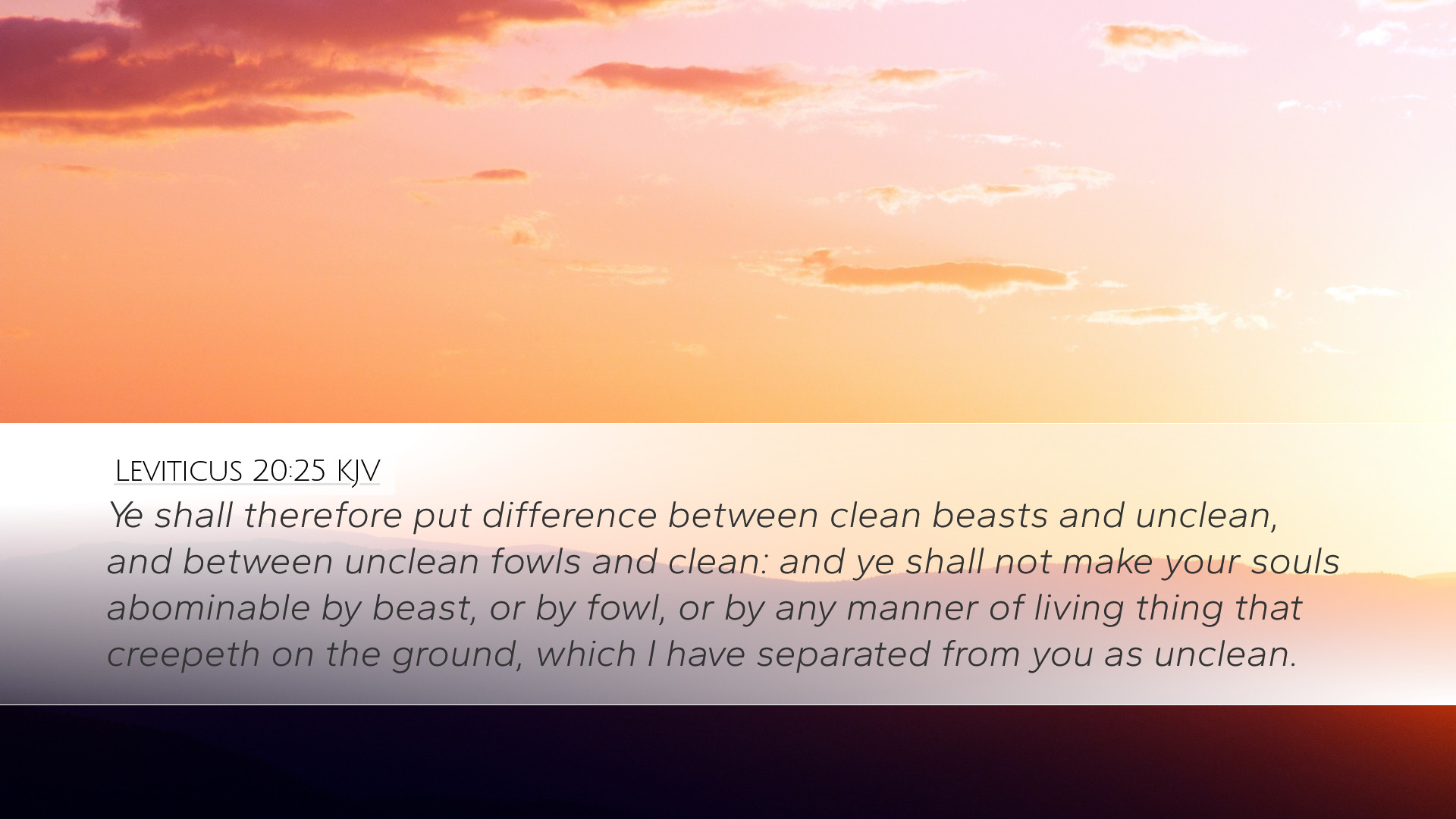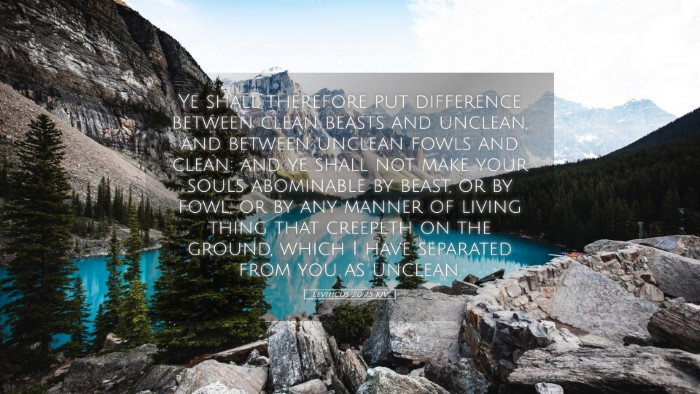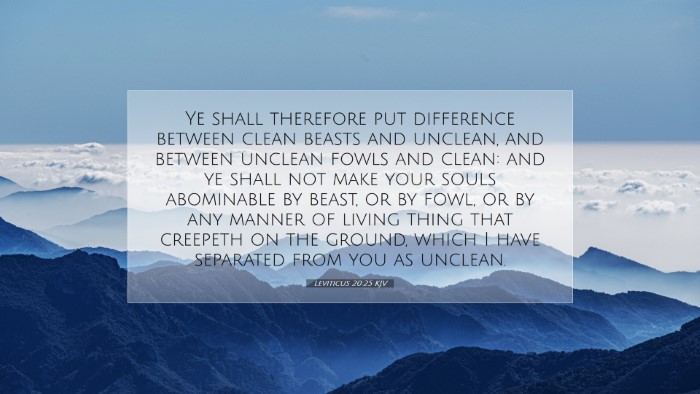Commentary on Leviticus 20:25
Verse Text: "You shall therefore separate the clean animals from the unclean, and the unclean birds from the clean, and you shall not make yourselves detestable by beast or by bird or by anything with which the ground crawls, which I have set apart for you as unclean." (Leviticus 20:25 ESV)
Introduction
Leviticus 20:25 stands as a critical verse within the Mosaic Law, emphasizing the concept of holiness and the separation between the clean and the unclean. The holiness code detailed in Leviticus serves as a foundational aspect of Israel's identity and their relationship with God. This commentary draws on the insights of prominent public domain theologians, offering a comprehensive understanding of the implications of this verse for personal and communal holiness.
Historical Context
The context of Leviticus is significant, as it was written during the time of Israel's wilderness wanderings, after their deliverance from Egypt and prior to their entry into the Promised Land. Matthew Henry notes that the laws presented were intended to establish a distinct national identity for Israel as God's chosen people. The separations between clean and unclean were central to this identity.
Understanding Clean and Unclean
In Leviticus, God sets forth various dietary laws that delineate what is clean and what is unclean. Albert Barnes explains that the distinction was not merely for health reasons but carried deeper theological significance. The clean animals and birds symbolize purity and the sanctity of life, while the unclean represent moral and spiritual corruption.
- Animals: Clean animals (e.g., cattle, sheep) were permissible for consumption and sacrifice, while unclean animals (e.g., pigs, camels) were not.
- Birds: Listed birds help to distinguish those that could be consumed or used in sacrifice from those that could not.
- Crawling Creatures: The mention of ground-crawling creatures adds another layer to the understanding of purity in everyday life.
Theological Implications
At its core, the command to separate the clean from the unclean is about maintaining a relationship with God. Adam Clarke asserts that these laws reflect God's desire for His people to embody purity and holiness in every aspect of their lives. This separation is a tangible reminder of their covenantal relationship with God.
Practical Applications
The principles derived from Leviticus 20:25 extend beyond dietary laws and into the realm of moral and spiritual living. For pastors and theologians, the following applications are significant:
- Holiness in Worship: Worship must be approached with an understanding of God's holiness. Just as certain animals were excluded from sacrifices, so too should elements of worship that fail to honor God be scrutinized.
- Community Standards: The church as a community must uphold standards of holiness. This means guiding members to reflect the purity of Christ in their actions and choices, thus creating a community that mirrors God's character.
- Personal Conduct: Individual believers are called to examine their lives for areas of moral impurity and uncleanliness. This self-examination is key to maintaining one's relationship with God.
The Role of Christ
From a New Testament perspective, the role of Christ fulfills and transforms the understanding of clean and unclean. The Apostle Peter's vision in Acts 10, where he is told to 'kill and eat' unclean animals, symbolizes the breaking of the barriers between Jew and Gentile. This points to a broader inclusion into the family of God through Christ.
Clarke emphasizes that while the dietary laws served a purpose for Israel, the true object of separation is sin. Jesus Christ embodies the ultimate sacrifice, rendering the ceremonial laws obsolete as He offers spiritual cleansing through His blood.
Conclusion
Leviticus 20:25 challenges us to reconsider our understandings of purity, both in physical and spiritual terms. As pastors, students, and scholars reflect on this passage, it invites a deeper engagement with the holiness of God and its profound implications for living faithful, set-apart lives in today's world. The separation of clean from unclean continues to be relevant today, urging believers to discern and reflect the holiness of God in every sphere of life.


